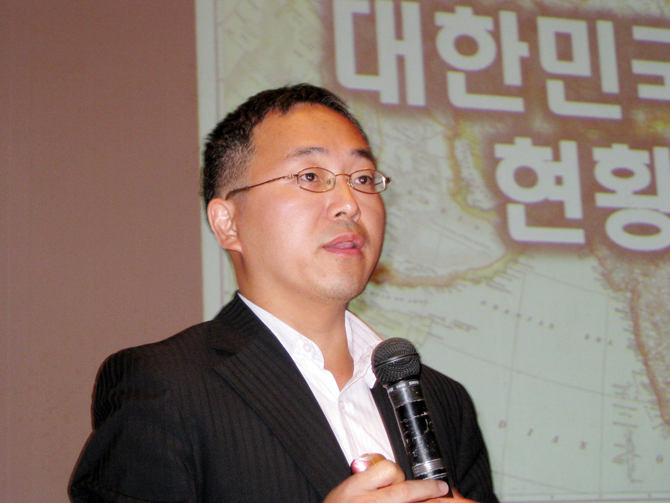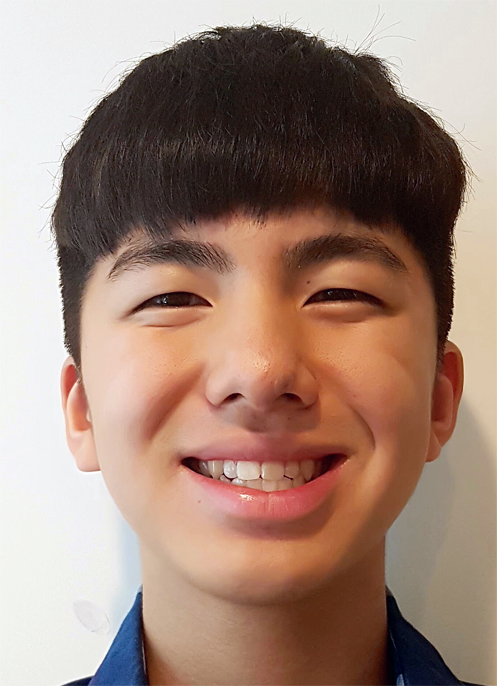THAAD Article 1 : North Korean Nuclear Threat and THAAD
http://www.heraldinsight.co.kr/news/articleView.html?idxno=360
http://www.heraldinsight.co.kr/news/articleView.html?idxno=360
THAAD Article 2 : North Korea’s Nuclear Ambition
THAAD Article 3 : Oppositions to THAAD Deployment
Earlier in this series, we examined the domestic and international opposition against the THAAD deployment in Korea, particularly the strong opposition by China. We also looked at the North Korean nuclear threat and found it to be real and imminent. We now consider the calculations the South Korean government is likely to engage in and the possible conclusion it may draw in the face of the oppositions.
The unavoidable reality is that South Korea does need some kind of defense system to protect against a potential nuclear strike by North Korea. No sane government would abstain from instituting defense measures and just rely on a hope that everything would be all right in this situation. The Patriot Advanced Capability system is already in place. However, the Patriot system still leaves the Korean peninsula vulnerable because it is comparatively a low altitude anti-missile system, leaving precious little time to intercept the incoming missiles. Augmenting the Patriot system with a high altitude interception system, thus ensuring additional precious seconds to intercept is the basic rationale for bringing THAAD to South Korea.
Nevertheless, the South Korean government faces two levels of domestic objections. Locally, many citizens in Seongju have protested against the THAAD deployment in their area citing the potential health hazard posed by the powerful radar of THAAD. However, according to Professor Boo Hyung-wook from the National Defense University, “The Ministry of National Defense went to Guam, where the THAAD radar is located. Test results show that the electromagnetic waves are not strong enough to bring harm to the human body.” On a national level, liberal politicians have vehemently criticized the government’s decision to allow the deployment of THAAD in South Korea. Their principal arguments are that the government is bowing to the pressure from the U.S. and that the decision will antagonize China. The prime minister of Korea countered such claims by saying that the decision was based on a “thorough evaluation of the current situation in Korea.”
Jeopardizing the relationship with China is a concern not just for the liberal politicians but also for the incumbent government of South Korea. China is the largest trading partner for South Korea. South Korea also needs China’s cooperation to keep North Korea’s nuclear ambition in check. In the long run, China’s stance will be a critical factor that may or may not make the unification of the Korean peninsula possible. Understandably, South Korea is loath to be on bad terms with China. But for the North Korean buffer, China is after all South Korea’s biggest potential threat that shares a border with the Korean peninsula. China’s opposition against THAAD, therefore, is a matter of grave concern for South Korea.
Domestic oppositions and China’s objection notwithstanding, retracting the THAAD deployment does not appear to be an option for South Korea. To retract the THAAD decision would be “going directly against the U.S. and its demands,” according to reporter Kim Sung-wook, president of the Liberty Herald. This is because THAAD, regardless of its practical purpose or effect, was fundamentally intended for the protection of U.S. troops against North Korea, according to Kim. To go back on the mutual agreement on the deployment could be taken as a sign that Koreans do not want the U.S. military on the peninsula. Given the high level of support in Korea for a continued alliance between South Korea and the U.S., the South Korean government does not appear likely to retract the THAAD decision.

Far more damaging would be the dangerous precedent that any decision to retract THAAD would leave in its wake. To call off the THAAD deployment would acknowledge the massive control that an external power like China has over domestic affairs of South Korea. This may well open the door for future exploitation by China of South Korea’s dependence on its trade with China. No sovereign nation can easily allow such a precedent to take hold.
One alternative up the sleeve of South Korea in the face of such opposition is the reintroduction of U.S. tactical nukes on the peninsula, which were withdrawn in 1991. One conservative representative in the National Assembly named Shim Jae-cheol went so far as to say, “The only way to defend our survival would be to maintain a balance of terror that confronts nuclear with nuclear.” The argument has it that nuclear deterrence worked throughout the Cold War, and that it could work again on the Korean peninsula. The proponent of this alternative also point out that U.S. tactical nukes can serve as a powerful “bargaining chip” vis-à-vis North Korea. In the past, South Korea has tried to withhold aid to the North and participate in the UN economic sanctions in order to get the North Koreans to stop nuclear testing. However, many South Koreans still support this type of aid, and the effects of economic sanctions proved to be minimal. The introduction of U.S. tactical nukes could directly counteract the North Korean nuclear ambition and this show of strength could encourage the intransigent North Koreans to see the futility of their nuclear development as a means of preserving their regime.
However, this solution does not appear to be viable in the current context. During the Cold War, the U.S. had an interest in preventing a major conflict on the Korean peninsula. Such a war could portend World War III. U.S. also did not have to worry about offending China; China was one of its arch enemies. Yet when the Cold War ended, the U.S. pulled tactical nukes out of South Korea. The situation in Korea right now is no longer an extension of the conflict between the U.S. and Russia. Rather, it is what it seems--a conflict between North and South Korea. The objective of the U.S. “nuclear umbrella” as we know it is not to meddle in another nation’s affairs on a water-tight level. Rather, it is to retain the U.S.’s influence as a worldwide superpower and to act as an indirect deterrence. Any deployment of U.S. tactical nukes now would likely amount to a provocation that China cannot ignore without responding in kind. Tactical nukes, even if fielded solely for deterrence purposes, are after all offensive weapons. In the current climate, the U.S. appears unlikely to entertain such a move. Furthermore, the deployment of tactical nukes would not solve the vulnerability of Patriot. Tactical nukes or not, the need for purely defensive “anti-missile missile” system remains.
North Korea’s recent development of SLBMs and miniaturization of nuclear warheads signify that the North Korean nuclear threat is now real. It is in the national interest of South Korea that its government chose to allow the THAAD deployment on its soil, not just to accommodate U.S. intentions. South Korea needs the capabilities of THAAD to intercept North Korean missiles at higher altitude and with precious more seconds to spare. It is not simply a two-sided battle between those who support a harmonious relationship with China and those who support the U.S.-ROK alliance. In the end, South Korea must ensure its own survival. No U.S. intentions or Chinese objections can be the ultimate determinant in South Korea’s need for defense against the North Korean nuclear threat. And there appears to be no other viable alternatives, including U.S. tactical nukes. The continuing South Korean domestic objections to THAAD bring us to the final point. Retracting the decision to allow THAAD in South Korea appears to be the least desirable course of action; South Korea simply cannot afford to leave a precedent of bowing to Chinese pressure. It is perhaps based on all these factors combined that even left-wing politician Moon Jae-in said, “It seems unrealistic to cancel the THAAD decision and expect the next administration to follow the same path. I don’t believe it’s that easy to go back on a settlement that has already been negotiated between Korea and the U.S.”

Andrew Chung
11th grade
Seoul Foreign School
By Andrew Chung

